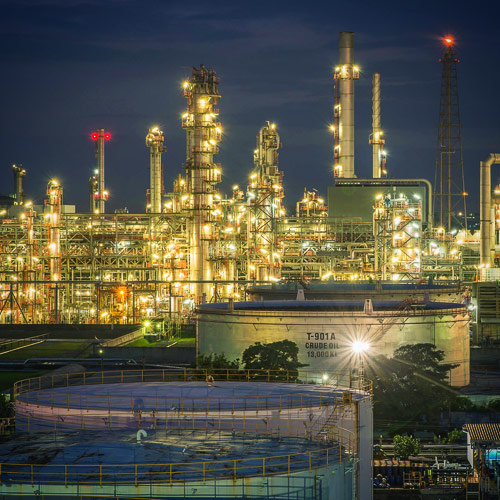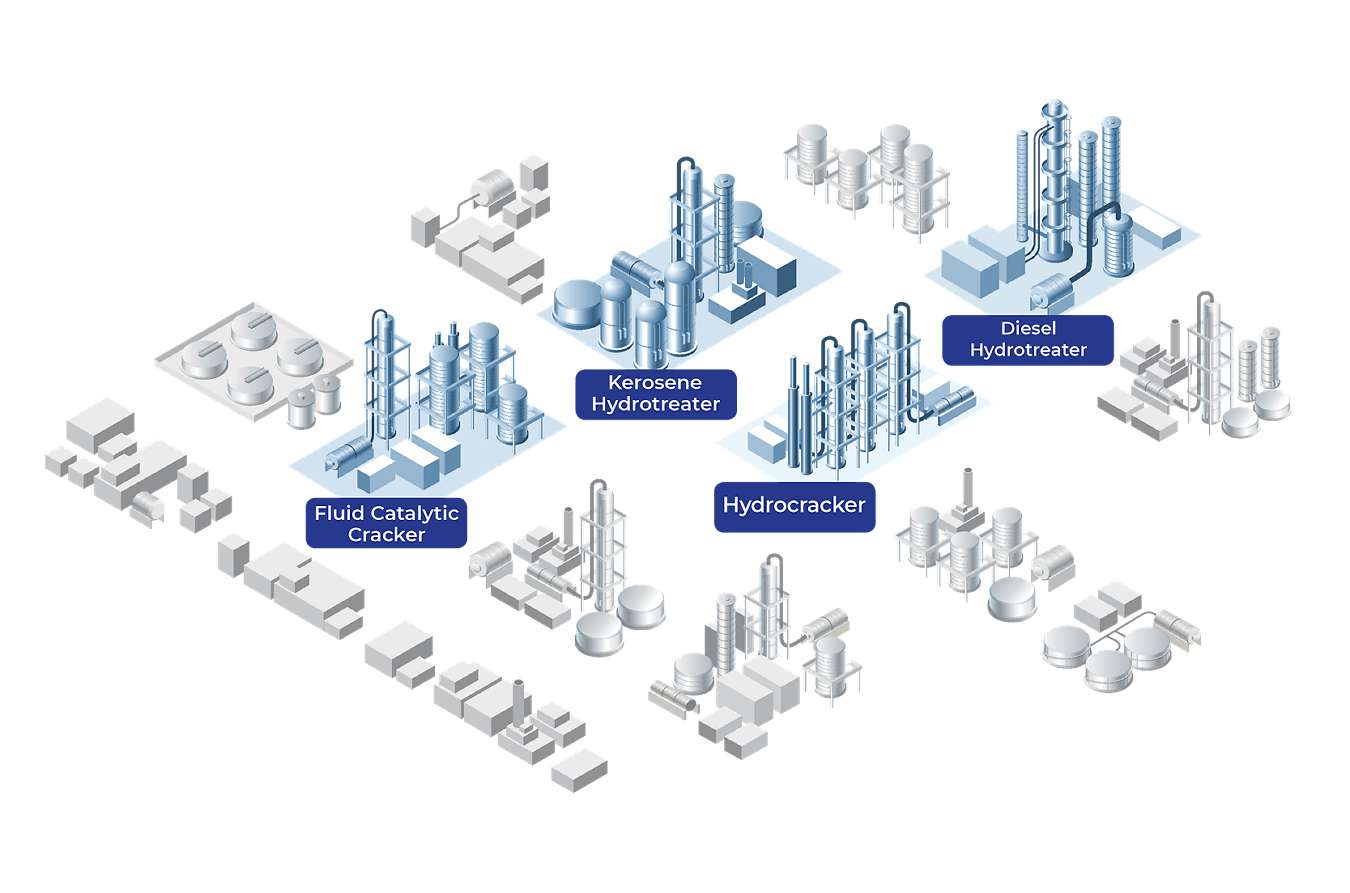O que é coprocessamento?
O coprocessamento envolve processamento de matérias-primas biológicas de resíduos em refinarias de petróleo existentes para produzir combustíveis de hidrocarbonetos renováveis. Refinarias podem usar unidades de hidroprocessamento existentes para processar resíduos biológicos como gordura animal ou óleo de cozinha usado. Biocombustíveis avançados/HEFA têm um potencial de redução de emissões significativamente maior do que combustíveis fósseis. Eles também são uma alternativa ambientalmente sustentável para aterros e incineração.
Muitas refinarias operam abaixo de sua capacidade, o que torna o coprocessamento de biocombustíveis uma opção viável para atender às metas de sustentabilidade e maximizar a produção sem fazer investimentos caros em ativos de refino. Dependendo da configuração da refinaria e dos produtos desejados, várias unidades de processamento da refinaria podem servir como pontos de inserção apropriados. A maioria dos coprocessamentos ocorre em hidrotratamentos, hidrocraqueadores ou craqueadores catalíticos fluidos.
Pontos de inserção típicos de coprocessamento em uma refinaria
Para saber mais sobre como as nossas soluções de filtração podem suportar a produção avançada de biocombustíveis, entre em contato com os nossos especialistas em filtração.

